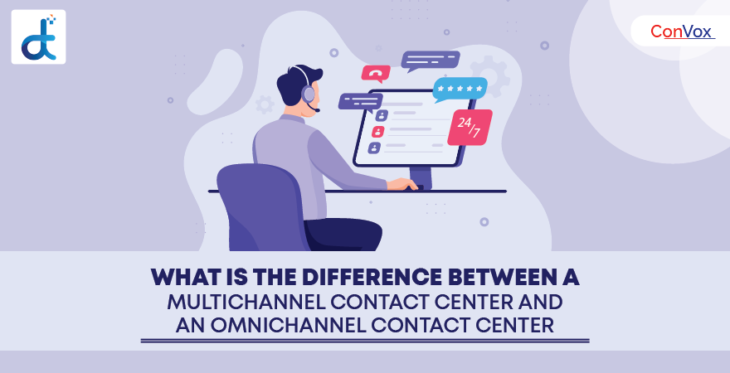
Multichannel Vs Omni Channel Contact Center.
If there are any two popular words that are always mixed up with each other, it would be omnichannel and multichannel.
Some individuals may believe that omnichannel is simply a more sophisticated way of stating multichannel and that they initially refer to the same concept.
Both multichannel and omnichannel contact centers use a variety of channels for communication, but what makes one different from the other and why does it matter? Is one preferable to the other? In this post, you’ll find out.
Multichannel Contact Centre vs. Omnichannel Contact Centre
- Seamless Integration
While approaching the company, all a customer cares about is how quickly his or her query is resolved. A speedy resolution is guaranteed when contacting a business that has an omnichannel contact center because of the efficient agent engagement. On the other hand, in a multichannel contact centre, an agent receiving a call is completely unaware of the past interactions a customer might have had through other channels.
Basically, omnichannel helps make sure that all the agents operating at a contact centre look like a single entity. When it comes to multichannel contact centres, every other agent treats every customer query as a new one.
- Number of channels
In both omnichannel and multichannel setups, there are various channels for communicating with multiple customers from various locations. This might involve email, social media, phone, live chat, and much more. If you haven’t reached a brand, multichannel and omnichannel call centres look alike from the outside. Once you take a little closer look, though, the similarities end.
- Difference in agent training
In a multichannel contact centre service, agents get training for particular channels. They are well-trained to handle particular channels to satisfy customer requirements that occur through a specific channel.
Agents at omnichannel contact centres are expertly trained to prioritise client questions across several media. They also need to understand the technology inside and out to properly provide fabulous service throughout the customer journey. Agent training has to be methodical and requires effort as well as time.
- Business Impact
The metric for analysing performance in the multichannel contact centre is channel-specific conversions to analyse the effectiveness of every channel. Disintegrated information as such makes it very complicated for the managerial team to discover and make executive decisions.
Omnichannel contact centres deliver a standardised, consistent, and personalised experience across channels with a streamlined dashboard for convenient access to customer engagement history. Because of this, entire business performance can now conveniently be measured, along with channel-specific impact. This makes it convenient for teams to make executive decisions and execute them.
Wrapping It Up:
Omni-channel contact centres need specific technologies such as unified dashboards, omnichannel routing, unified presence technology, and so on. These are generally integrated into the cloud to make the ecosystem conveniently scalable. Omni-channel contact centre technology runs on a single-invoice, single-vendor model.
Multichannel contact centres, too, need dedicated technology, but there is a specific technology infrastructure for every channel. There may or may not be inter-channel executions, and the company is probably going to incur various invoices for the multiple licenses needed.
